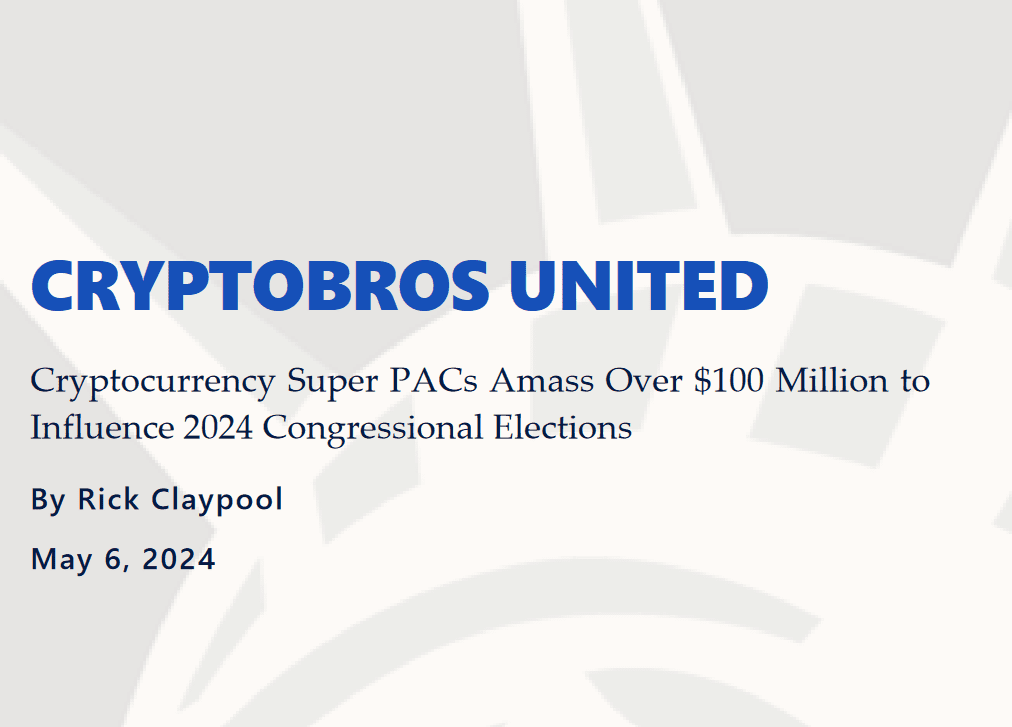In the U.S., political action committees (PACs) supported by the crypto sector have raised over $102 million to back candidates favorable to digital assets in the upcoming U.S. congressional elections. This surge in funding positions the crypto industry among the top contributors this election cycle, trailing only behind two other major super PACs. This support from crypto-friendly politicians can also be seen as a counter-initiative to the SEC under Gary Gensler, under whose leadership the U.S. regulator is taking massive action against the crypto scene.
Understanding Crypto-Backed Super PACs
Despite a Pew Research Center finding that only about 17% of Americans have engaged with cryptocurrencies and a significant 75% of those aware of them distrust their safety and reliability, crypto corporations and executives are determined to heavily invest in this election cycle.
They plan to allocate over $102 million to support crypto-friendly candidates who will likely advocate for lenient regulations and challenge opponents with skepticism towards the sector. This strategic financial commitment follows the 2010 U.S. Supreme Court ruling in Citizens United v. Federal Election Commission, which enables corporations and the ultra-wealthy to create and fund Super PACs. These PACs can spend unlimited amounts in efforts to influence election outcomes in favor of their preferred candidates, significantly impacting the political landscape.
Definition of Super PACs: Super PACs are independent political committees that can collect unlimited funds from corporations, individuals, and associations. They use these funds to support or oppose political candidates, though they are prohibited from coordinating directly with the candidates or their campaigns.
Crypto-Backed Super PACs: These are Super PACs that receive significant funding from cryptocurrency businesses, executives, and venture capitalists. They specifically aim to support candidates who are perceived as favorable to the interests of the crypto industry.
Strategic Importance and Objectives:
- Fundraising: The substantial amount raised by crypto-backed Super PACs highlights the cryptocurrency industry’s intent to influence policy decisions. With over $102 million gathered for the elections, the sector is taking a proactive stance to sway legislative outcomes in its favor.
- Influence in Legislation: By backing pro-crypto candidates, these Super PACs seek to shape future regulations and laws that govern the cryptocurrency space, ensuring a favorable operating environment.
- Response to Regulatory Scrutiny: Facing increasing scrutiny from regulatory bodies like the U.S. Securities and Exchange Commission (SEC) and various lawmakers, the crypto industry is leveraging Super PACs to strengthen its advocacy and legislative influence.
Major Contributors and Expenditures:
- Corporate Contributions: Around $54 million of the political funding comes directly from corporations, with notable contributions from major players like Coinbase and Ripple Labs.
- Venture Capitalists and Executives: Significant funding also comes from influential figures in the tech and finance sectors, including multimillion-dollar donations from founders of firms like Andreessen Horowitz and the Gemini Exchange.
Focus Areas:
Crypto-backed Super PACs are particularly concentrating on pivotal Senate races in Ohio and Montana, where incumbents Sherrod Brown and Jon Tester, both Democrats and critical voices on the Senate Banking Committee, are campaigning for re-election. These senators have expressed concerns about the use of cryptocurrencies in illegal activities, highlighting risks associated with entities like Hamas and North Korea’s Lazarus Group that exploit these digital assets for nefarious purposes.
Conclusion:
The involvement of crypto-backed Super PACs in this election cycle is a clear indicator of the cryptocurrency industry’s strategy to cultivate a regulatory and legislative environment that can foster its growth and stability. By channeling funds into specific races and supporting candidates who advocate for crypto-friendly policies, these PACs not only aim to mitigate the challenges posed by regulatory bodies but also secure a long-term impact on how digital assets are perceived and managed in the legislative arena.
